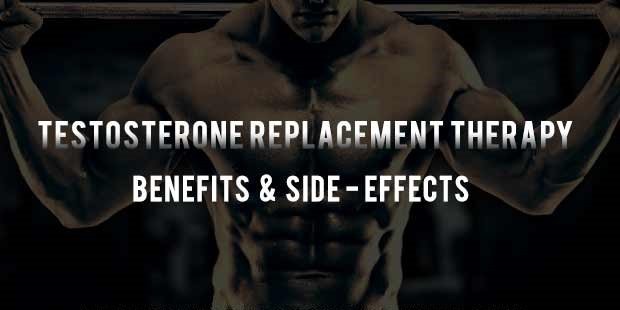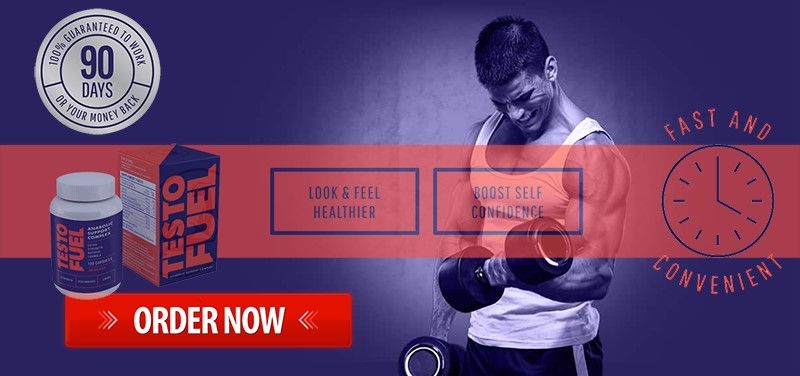How Safe is Testosterone Replacement Therapy?
Testosterone is the major male sex hormone, it is the hormone responsible for the development of male characteristics. The characteristics include the growth of facial and body hair, development of strong bones, increased libido, fat accumulation, and development of lean muscles among many others. However, the levels of testosterone are not constant and vary with age. The levels spike to the highest during the adolescent period. This is apparent through the major male characteristics development at this growth phase. The levels then start gradually declining after the age of 30. The normal level of testosterone is estimated to be between 300ng/dL and 1,200ng/dL. Scientists say that the levels fall by 1% each year after age 30. The continuous decline of testosterone levels leads to a condition called hypogonadism. This is the condition where the body is unable to secrete enough testosterone to maintain their levels to normal.
Testosterone is a very essential hormone for body development. The testosterone, therefore, needs to be maintained at the right levels. This can be achieved through a process known as testosterone replacement therapy. The therapy is done in various ways. Among the most known ways are: Skin patch commonly known as transdermal, gels, mouth patches, injections, and implants.
Low testosterone levels are accompanied by various symptoms, just like any other deficiency in the body. Some of the symptoms may be similar to symptoms caused by old age. They include:
- Low cognitive power
- Loss of muscle mass
- Change in sleeping patterns
- Low sex drive
- Erectile dysfunction
- Decreased body energy levels
Want a better alternative to boost your testosterone levels? Then try Testogen. Buy it from the link below
Low cognitive power
Low memory function has been mostly associated with old age, but testosterone plays a vital role in ensuring proper memory health. Research associates testosterone with decision making. It reveals that low testosterone levels reduce the levels of cognitive functions of the brain, specifically the intuitive decision making.
Low bone density
Numerous researches have associated low testosterone with low bone density. It has been established that osteopenia was recorded high on men on low testosterone. Testosterone has been associated with the development of strong bones.
Change in sleeping patterns
Low testosterone also has been found to be one of the causes of insomnia. Insomnia is a condition where one develops sleeplessness. Low testosterone levels have been found to play a role in some of the causes of insomnia. Sleep is generated as a healing mechanism when your body organs have been active for a while. Low testosterone renders the body inactive. Insomnia stems from such cases. Low testosterone levels cause stress too. Stress is a major hindrance to getting sleep.
Low libido
The most immediate effect associated with low testosterone levels in low libido. It is the primary male sex hormone. The sex health of the affected person takes the hardest hit in such conditions. A decrease in testosterone levels sharply decreases the sex drive. Testosterone activates the androgen receptors in the brain that in return impact the sex drive.
Decreased body energy levels
Scientific research reveals that testosterone affects the body’s energy levels. This is due to the fact that it affects the mitochondria. Mitochondria is the part of a cell that is responsible for energy production in the cells. Though the research is not conclusive on how it does this, it is believed that it triggers the mitochondria to produce more energy. Another divide of researchers argues that if the androgen receptors do not get enough testosterone to activate them, they cause fatigue.
Erectile dysfunction
As remarked earlier, testosterone is a crucial part of male sexual health. Testosterone regulates the levels of nitric oxide in the body. This nitric oxide triggers the blood vessels to dilate, which allows more blood to flow in the blood vessels. This causes more blood to flow to the penis and hence causes the erection. Low levels of testosterone cause low levels of nitric oxide which leads to low blood flow in the blood vessels; consequently erectile dysfunction can also be caused by other complications arising from low testosterone such as obesity and high blood pressures.
A product with way better reviews is This. You can get it by clicking below
Loss of muscle mass
It’s quite apparent from numerous studies that testosterone is responsible for the development of lean muscles. Testosterone is a primary aid to the process of protein synthesis. Protein is useful as it enables the development and repair of body cells. Protein taken in the body is not useful in that form. It has to be broken down into a useful form. Low testosterone levels hinder efficient protein synthesis. When the protein in the body is not fully synthesized, it’s converted to fat. This leads to a reduction of body muscles.
Does Testosterone Therapy Promote Youth and Vitality?
On some occasions people use testosterone therapy to promote youth and vitality. Is it effective? Testosterone therapy has proven to help eliminate the low-level testosterone condition in males. Research has not found extra advantages from the use of testosterone therapy for older men. It is rumored that testosterone therapy makes the user feel younger and energetic as they used to be at an early age. Research however has contradictory results. A faction of the researchers has found that the men who took the therapy, developed stronger muscles. The other faction of researchers found a rather interesting observation. They found that muscle mass has increased without gaining strength.
What Are The Side Effects of Testosterone Therapy?
Testosterone therapy helps improve the levels of testosterone. It is a process that requires a high level of professionalism and care. Some may ask why can’t I just administer the therapy to myself? Read below to understand why.
Testosterone therapy is associated with some negative side effects. What are the side effects experienced as a result of testosterone therapy? Tag along and let’s find out.
Sleep apnea
This is a condition where the sleeping pattern is disrupted. This condition causes breathing to frequently start and halt, which causes an interruption in one’s normal sleeping pattern.
Acne and skin reaction
This is mostly experienced at the point of injection. This causes one to develop skin irritation which leads to scratching of the body more often.
Risk of Prostate Cancer
Research links the therapy to the growth of the cancerous tissues in the prostrate. If the user has prostate cancer, the therapy enhances the spread of cancer. Prostate cancer is a common condition affecting elderly men all around the globe.
Breast enlargement
This is a condition commonly referred to as gynecomastia. Huge bursts of testosterone in the body cause corresponding bursts in the production of estrogen. This causes hormonal imbalance. One of the most visible symptoms of hormonal imbalance is the growth of breasts on men. It is recommended that one takes the therapy with estrogen suppressors, to reduce the risk of hormonal imbalance.
Natural Production is Stalled
Testosterone therapy involves the introduction of synthetic testosterone hormones in the body. These suppress natural testosterone production. For individuals suffering from extremely low testosterone levels, this has no effect has their body is not producing the hormone anyway. For younger people seeking to enhance their physical performance, they should realize that their natural production is stalled. The natural production does come back when one stops taking the therapy though.
Shrinking Testicles
The natural production of testosterone takes place in the testicles. Testosterone therapy stalls this process. The testicles tend to shrink as a result of the reduced activity.
Risk of heart attack
Quite a number of scientific studies have demonstrated that testosterone therapy increases the chances of a heart attack. The studies also reveal that men who are below 65 years old undergoing testosterone therapy increase their chances of a heart attack shortly after they start the therapy. This can be fatal
Blood clots
Testosterone therapy is also believed to increase the chances of deep vein thrombosis and pulmonary thrombosis. Research indicates that the first 6 months of testosterone therapy increase the chances of one having blood clots by 63%.
Must I consult a doctor before testosterone therapy?
Are the manufacturers recommended dosages enough? These questions are very sensitive. One needs to understand different bodies react differently to testosterone therapy. It’s also important to note that the levels of the testosterone vary from one person to the other. Doctors’ advice is therefore very essential. The doctors will first take tests to determine various important parameters in your body, before prescribing a particular dosage.
The doctor will also be able to diagnose whether you have any medical condition, that could render you unfit to be subjected to testosterone therapy. Testosterone therapy has very strong effects. Taking it while suffering from other medical conditions can prove to be fatal.
As already said before testosterone therapy interferes with a number of normal body functions. Only a professional doctor can be able to advise you on how to minimize the impact of these effects. Also, while stopping the therapy, you need to go through PTC (post-therapy cycle). This process helps your body to adapt to the new conditions of fewer testosterone injections. You are likely to make fatal mistakes in such processes if you don’t seek professional help.






